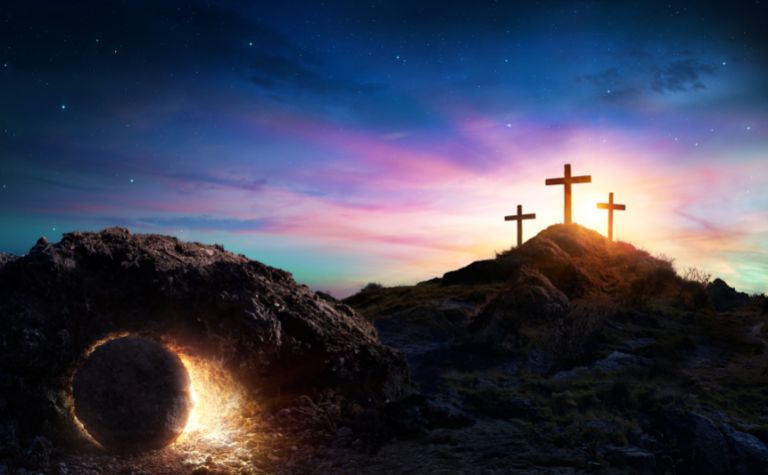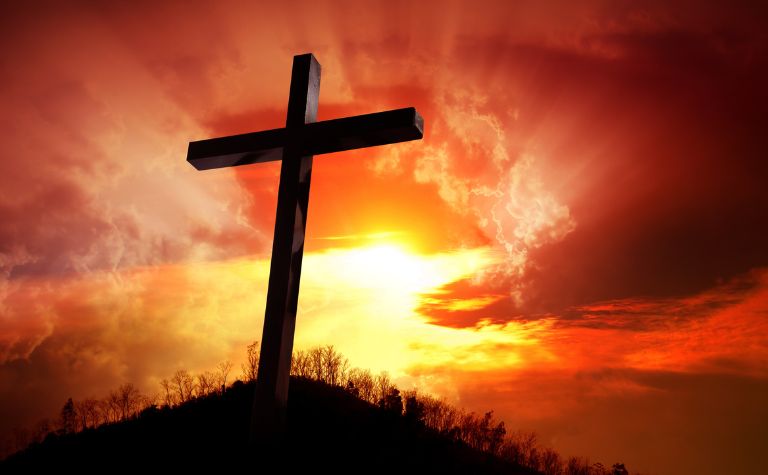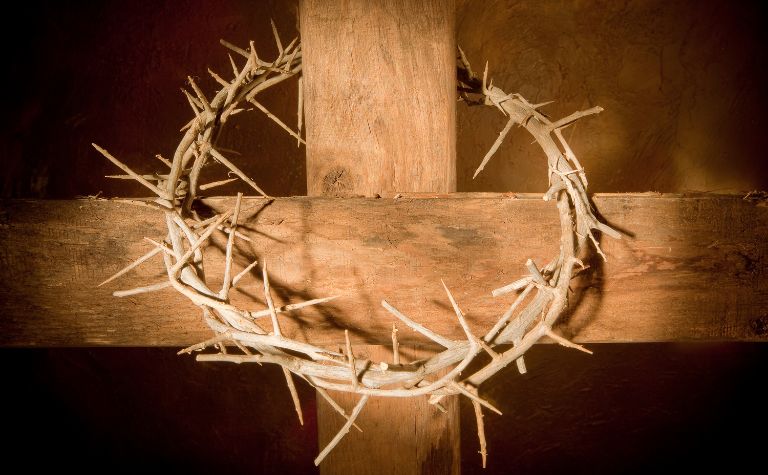The resurrection of Jesus Christ, along with his crucifixion, is the most important event in Christianity. Without it, the faith that Jesus founded would be groundless. As the Apostle Paul taught, the belief and trust that believers put in Jesus would be worthless (1 Cor. 15:17) if he didn’t rise from the dead. Because of its significance, Christians celebrate Jesus’ resurrection at Easter, and some observe Easter Monday.
Easter Monday follows Easter, also called Resurrection Sunday, when Christians and churches worldwide celebrate Jesus’ resurrection. Easter Monday isn’t as popular as Good Friday and Resurrection Sunday in the West, but it’s an important part of the season in the East.
Why is Easter so important to Christians? What is the purpose of Easter Monday? How is the date of Easter Sunday and Monday decided each year? How does Easter Monday relate to the sacred days before and after it? Keep reading to learn the answers to these questions and others.
Also, many events, celebrations, and customs happen around Easter. Learn more about the meaning of Resurrection Sunday to get more insight.

The Day Before Easter Monday
Easter Sunday is the climactic day of the most important season of the Christian calendar. It follows Lent and Good Friday and is a day when believers gather together to collectively express their faith in Jesus, their Lord and Savior, who is alive and not dead. Easter services are filled with celebratory songs, prayers of thanksgiving, and teaching about the necessity of Jesus’ resurrection for salvation.
After church in the morning, many families gather in each other’s homes to share a meal, fellowship, play games and watch sports. Some Christian households encourage their children to participate in activities that include belief in the Easter Bunny and looking for hidden Easter Eggs and candy. Yet, others don’t since the tradition isn’t associated with Jesus or the Bible.
In the West, Easter Sunday marks the end of the special holy season that started with Lent. Most children return to school the next day, and adults return to work. So not only is many people’s observance of Easter complete, but they don’t return to church the following Sunday. Some don’t return to church until Christmas. Others don’t return until Easter the following year.
What is the purpose of Easter Monday?
In contrast to most traditions in the West, other Christians in the world continue to celebrate Easter the Monday after Resurrection Sunday. Though Easter Sunday at church and home is the climactic day of the season, Easter Monday gives observers extended rest, reflection, and more time with other people.
While Easter Sunday is joyous, it can also leave people tired and needing recovery before returning to their routine. Resting has spiritual benefits, according to the Bible (e.g., Isa. 30:15; Psa. 116:7), and Easter Monday helps believers maximize those blessings. To encourage rest, the governments in some countries have made Easter Monday a national holiday alongside Good Friday, making an extended weekend.
Some argue that Western culture doesn’t see the value in rest and reflection that others worldwide do. This approach to work may explain why some countries don’t value Easter Monday.
Also, many people know Easter can occur in March or April. Discover why the date for Easter changes every year to get more understanding.

When is Easter Monday?
The Bible doesn’t command people to observe Easter Monday or Easter Sunday. Instead, these special days on the church’s calendar are people’s applications of the Scripture. This fact means they are important ways to express gratitude for what God has done with others want to as well. So, like the Israelites had annual holidays that recalled God’s faithfulness, the Christian church also does.
What is the date of Easter Monday?
Easter Monday is the day after Easter Sunday, which occurs every year in the Spring, but the date changes because of how church leaders established the holiday in the 4th century.
At the Council of Nicea in 325 A.D., the Western church decided to celebrate Easter every year on the first Sunday following the new moon that occurs on or after March 21. The date varies between March 22 and April 25. Eastern Orthodoxy celebrates Easter between April 4 and May 8 each year, after the first full moon following Passover.
Easter Monday in the West
| Easter Sunday | Easter Monday |
|---|---|
| Sunday, April 9, 2023 | Monday, April 10, 2023 |
| Sunday, March 31, 2024 | Monday, April 1, 2024 |
| Sunday, April 20, 2025 | Monday, April 21, 2025 |
| Sunday, April 5, 2026 | Monday, April 6, 2026 |
| Sunday, March 28, 2027 | Monday, March 29, 2027 |
| Sunday, April 16, 2028 | Monday, April 17, 2028 |
| Sunday, April 1, 2029 | Monday, April 2, 2029 |
| Sunday, April 21, 2030 | Monday, April 22, 2030 |
Easter Monday in the East
| Easter Sunday | Easter Monday |
|---|---|
| Sunday, April 16, 2023 | Monday, April 17, 2023 |
| Sunday, May 5, 2024 | Monday, May 6, 2024 |
| Sunday, April 20, 2025 | Monday, April 21, 2025 |
| Sunday, April 12, 2026 | Monday, April 13, 2026 |
| Sunday, May 2, 2027 | Monday, May 3, 2027 |
| Sunday, April 16, 2028 | Monday, April 17, 2028 |
| Sunday, April 8, 2029 | Monday, April 9, 2029 |
| Sunday, April 28, 2030 | Monday, April 29, 2030 |
Also, many people know that Christianity’s roots are in the Jewish. This leads many to wonder if Jewish people celebrate Easter. See the article for a full explanation.

How does Easter Monday relate to other sacred days?
Easter Monday begins other observances in Christian churches worldwide. The book of Acts reports that after Jesus rose from the dead, he ascended into heaven (Acts 1:9), and then the Holy Spirit fell upon the early church with great power (Acts 2:1-4). The special days on the church calendar after Easter highlight these important events.
Easter Monday is the second day of Eastertide. Eastertide is the traditional name for the time between Easter and Ascension Day and Trinity Sunday. Since Jesus ascended into heaven 40 days after his resurrection, Christian churches observe Ascension Day 40 days after Easter. Trinity Sunday, which occurs after Ascension Day, is the first day after Pentecost on the church calendar.
Easter Monday is the first day of the Octave of Easter. Some Western churches observe the “octave’ (i.e., eight) of Easter, the eight days between Easter Sunday and the following Sunday. Some traditions refer to this period as “Easter Week.”
Easter Monday is the second day of Bright Week. Also called “Pascha Week” or “Renewal Week,” Bright Week occurs in Eastern Orthodox and Byzantine-Rite Catholic Churches. It starts on Easter Sunday and ends the following Saturday.
Easter Monday in the United States
The federal government in the United States doesn’t formally recognize Easter Monday. However, some Americans observe the holiday, especially those that come from non-Western countries that do. Some Christian colleges and universities give their students and staff Monday off. Yet just because some Americans don’t work or go to school that day doesn’t necessarily mean they are observing the day.
Also, some Christian traditions have unique ways of celebrating Easter. Discover when Greek Easter is to get more understanding.
References:
[1] Oxford Dictionary of the Christian Church
[2] Wikipedia
Related Questions
Christians love to celebrate the resurrection of Jesus Christ because his victory over sin and death is foundational to their faith (1 Cor. 15:17). Unlike other sacred days on the Christian calendar,...
The life of Jesus Christ is of supreme importance in Christianity. As recorded in the Gospels, who he was, what he did, and what he taught comprise the centerpiece of his followers' faith, worldview,...
